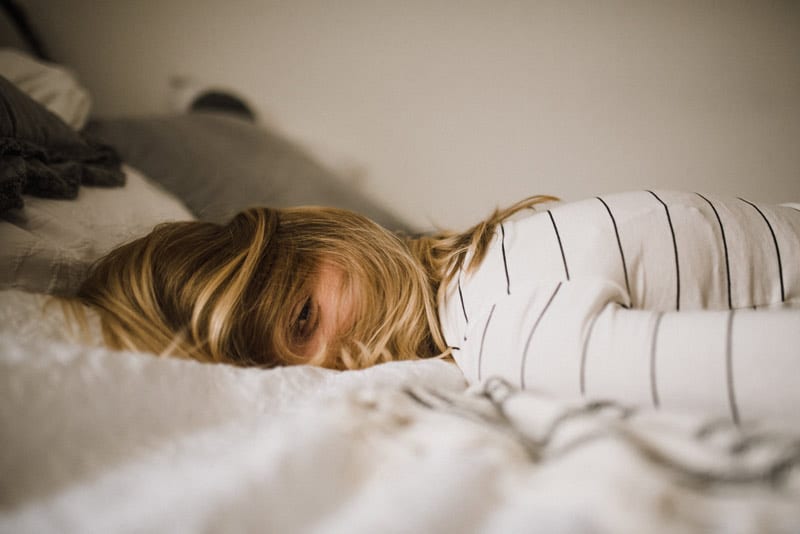According to studies, women are more vulnerable to depression than men, especially young women ages 14-25. However, this number decreases as women grow older. Moreso than men, women experience different types of depression, which we will discuss later.
Knowing the early signs and symptoms of depression will give you a chance to help women in your family who might be suffering from this mental health condition silently.
Below are the signs and symptoms that a woman is struggling with depression.
Signs and Symptoms To Watch Out for
- You are losing interest. One of the early signs you can notice in depression is losing interest in things you usually love. It can be an undeniable sign as your enthusiasm for that particular thing or activity will suddenly decline.
- You will constantly feel tired even if you don’t do anything the whole day. You will feel that you lack energy which is also the main reason you lost interest in the things you usually love. You can notice that you will stay in bed longer or slack off the whole day.
- Emotional Outbursts. Your emotions are uncontrollable, and outbursts happen now and then. Emotional outbursts are usually not typical. There has to be something that triggers this outburst, and depression can be one of them. Depression causes mood swings which can result in dysregulated emotions.
- Changes in Appetite. Women with depression tend to change the way they eat. This change varies from person to person as some may have an increase in appetite, and others may lose it. If you live with the person, you may quickly notice these changes as you know her usual eating habits.
- Weight Change. As a result of appetite changes, you may experience changes in weight. Depending on how you cope with depression, you might either lose or gain weight whether or not the weight change is intentional.
- Suicidal Thoughts. Depression plays a huge role in suicidal attempts recorded throughout history. Research shows that depression has a 20% lifetime risk of suicide if not treated properly. Signs and symptoms of depression usually show up before the suicidal thoughts kick in.
Depression should be quickly controlled as it can also affect your heart health in the long run. If you think you are suffering from depression based on the signs and symptoms mentioned, then you must also look after your heart and not only for your mental health.
Different Kinds Of Depression In Women
Women experience different kinds of depression. It is best if you know what type of depression a woman is going through to understand how to be most supportive and helpful. Here are the different kinds of depression women can go through at any age.
Major Depressive Disorder or MDD
Major depressive disorder is what people refer to when they say clinical depression. This kind of depression is a mood disorder classified by various features that can affect how you behave, think, and feel. It can cause you to have trouble doing your normal day-to-day activities.
Persistent Depressive Disorder or PDD
This kind of depression is present most of the time on most days for a period of at least two years. This chronic depression is also called dysthymia and can be mild, moderate, or severe.
Bipolar Disorder
A bipolar disorder is also a mood disorder with an unusual elevated mood or mania. This can be either a mild feeling or extreme, leading to self-harm and risky behaviors. Most people who have bipolar disorder experience episodes of major depression.
Postpartum Depression or PPD
Postpartum depression happens only in women, especially those who just gave birth, are pregnant, or have had a miscarriage. This type of depression is caused by hormonal changes in the woman’s body.
Premenstrual Dysphoric Disorder or PMDD
Premenstrual dysphoric disorder has similar symptoms to PMS or premenstrual syndrome, but more is serious. PMDD causes extreme mood swings, irritability, depression, or anxiety in the week or two before your period starts.
Seasonal Affective Disorder or SAD
As the name suggests, seasonal affective disorder is a kind of mood disorder that only happens during a specific season. For example, if you feel depressed, have increased sleepiness, and gain weight during the winter but feel fine throughout the other seasons, you may have SAD. SAD is triggered by a disruption of the normal circadian rhythm of the body. The amount of light that enters the body through our eyes affects this rhythm.
Atypical Depression
Women with atypical depression may feel the usual signs and symptoms of depression but can still appear positive and socialize without seeming to be affected by their depression. They usually have more mood reactivity than people with MDD. That is, their mood will improve if something positive happens to them.
Seek Help
If you have seen the signs and symptoms of depression in yourself or a particular family member, it is best to seek professional help. Depression is something that should not be ignored, as it can have harmful consequences and even result in death if left untreated.
If you or someone you know experiences mental health issues, it is important to seek help from a qualified professional. Our Resource Specialist can help you find expert mental health resources to recover in your community. Contact us now for more information on this free service to our users.
About the Author: Amanda is a divorced mother of three who owns two daycares in Salt Lake City. She has three children, two of whom have been diagnosed with ADHD and one of those with asthma. Looking for relief from the high costs of their prescriptions, she found BuzzRx, and has absolutely loved the benefits it offers! Now, she has more money to spend on experiences with her kids, and they are able to be much less stressed about being able to afford prescriptions.
Mental Health Month 2021
Access for All
May is Mental Health Month, a time to spread public awareness and education about mental health disorders and reflect on the impact of mental illness on individuals and their families.
It is also a time to recognize and commit to changing the racial and economic inequities in our health care system, particularly with respect to mental health.
www.rtor.org and Laurel House are committed to the advancement of racial equity and social justice, and to making mental health services accessible to all.
In addition to Mental Health Month, May 5th, 2021 is Maternal Mental Health Day, raising awareness, influencing policy, and changing attitudes about mothers with perinatal mood and anxiety disorders.
Photo by Kinga Cichewicz on Unsplash
The opinions and views expressed in any guest blog post do not necessarily reflect those of www.rtor.org or its sponsor, Laurel House, Inc. The author and www.rtor.org have no affiliations with any products or services mentioned in the article or linked to therein. Guest Authors may have affiliations to products mentioned or linked to in their author bios only.
Recommended for You
- What Causes Addiction (and Why It Matters) - December 30, 2024
- Understanding Mental Health and Stress: How to Cope Effectively - December 26, 2024
- Finding Light in the Darkness: Coping with Grief and Loneliness During the Holidays - December 23, 2024





